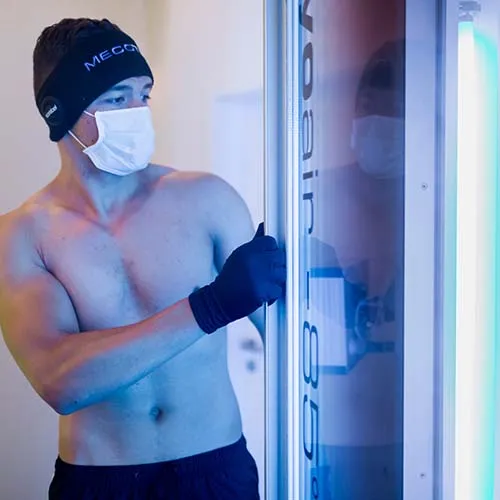Cryotherapy, the therapeutic use of cold temperatures, has gained significant attention in the athletic world for its potential to enhance performance, speed up recovery, and increase overall strength and stamina. This treatment involves exposing the body to extremely cold air, typically between -110°C and -140°C, for a short period, usually two to four minutes. Athletes from various sports disciplines are increasingly turning to cryotherapy as part of their training regimen, driven by claims that it can reduce muscle soreness, limit inflammation, and ultimately improve physical performance. While the science continues to evolve, a growing body of evidence supports the effectiveness of cryotherapy in promoting faster recovery and enhancing athletic output. One of the primary benefits of cryotherapy lies in its ability to accelerate the recovery process. After intense physical exertion, muscles experience microscopic tears that lead to inflammation and soreness, known as delayed onset muscle soreness DOMS. Cryotherapy is believed to combat this by constricting blood vessels and reducing metabolic activity, thereby limiting inflammation.

Once the body is removed from the cold, the blood vessels re-dilate, allowing a fresh flow of oxygenated blood to flood the tissues, helping to flush out toxins and promote healing. This rapid vascular reaction can significantly decrease downtime between workouts or competitions, enabling athletes to train harder and more frequently without overloading their muscles. Beyond recovery, cryotherapy may also play a role in boosting strength and stamina. Regular use of cryotherapy has been associated with reduced perception of fatigue and an increase in energy levels, which can lead to enhanced endurance during training sessions. Some studies suggest that cold therapy may positively influence hormonal responses, such as increased norepinephrine production, which not only aids in alertness but also in muscle endurance. Furthermore, by mitigating the pain and inflammation that typically accompany intense exercise, cryotherapy allows athletes to maintain high levels of performance without being hindered by discomfort or injury. Additionally, the psychological benefits of cryotherapy should not be overlooked. Many athletes report feeling invigorated and mentally refreshed following a session.
The shock of cold exposure may stimulate the release of endorphins and elevate mood, which is crucial for maintaining motivation and mental focus in competitive sports. This mental edge can be as valuable as physical recovery when it comes to consistent athletic progress and performance under pressure. However, while cryotherapy shows promising results, it should be viewed as a complementary tool rather than a standalone solution. Optimal results are achieved when it is integrated into a comprehensive training and recovery program that includes proper nutrition, hydration, rest, and active recovery strategies. It is also important for athletes to consult healthcare professionals before undergoing cryotherapy, especially those with pre-existing health conditions. Cryotherapy offers a range of potential benefits for athletes looking to enhance their recovery, strength, and stamina. Its ability to reduce inflammation, alleviate pain, and support mental well-being makes it a valuable asset in modern sports performance strategies. As research continues to unfold, cryotherapy poole is likely to remain a popular and evolving tool for those striving for peak athletic excellence.


